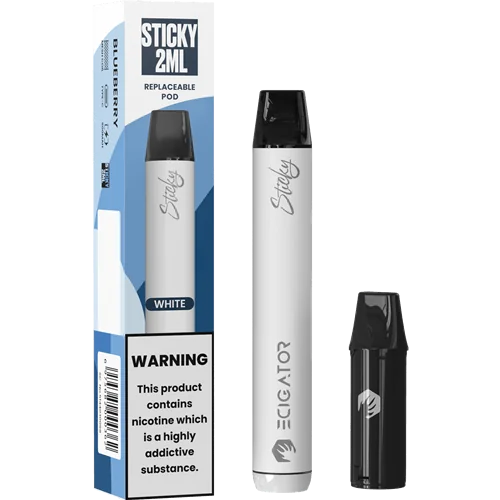EU Associations Call For Disposable Vape Ban By 2024
A coalition of prominent European waste and recycling associations is calling on the European Union to ban single-use e-cigarettes by the end of 2024. The groups cite growing concerns over the devices’ negative environmental impact and incompatibility with circular economy goals.
The Rise of Disposable Vapes
E-cigarettes first entered the European market in 2006 as a smokeless alternative to traditional tobacco. But the introduction of single-use disposable models in 2019 fueled explosive growth.
Disposables quickly gained popularity for their lower cost, compact size, and variety of flavors with or without nicotine. Global sales surged to over $19 billion by the end of 2019.
Valuable Materials Wasted
Despite their small size, disposable vapes contain some of the world’s most precious resources:
- Steel
- Aluminum
- Copper
- Lithium
The devices also include plastic casings treated with brominated flame retardants, a type of persistent organic pollutant (POP).
When carelessly discarded, these materials are lost forever instead of being recycled and reused. The waste undermines efforts to conserve critical raw materials through a circular economy.
Regulatory Shortcomings
Under EU producer responsibility laws, e-cigarettes are classified as electrical and electronic equipment (EEE). Manufacturers and distributors must finance collection and end-of-life recycling.
But inadequate enforcement and low public awareness mean many vape producers aren’t properly registered. They operate as “free riders” who contribute nothing to the waste treatment system.
Disposable models further complicate the issue. Their integrated lithium batteries can’t be easily separated for recycling like rechargeable vape components.

Ecigator Sticky Prefilled Pod Kit
The Ecigator Sticky Prefiiled Replaceable Vape Pod Kit is new kind of vape kit which the prefilled disposable pod can be changed.
That means you don’t need to throw away the whole kit but just change another pod. Also you can change the pods to taste different flavors.
Environmental and Health Toll
Improperly discarded single-use vapes unleash a toxic stew of heavy metals, nicotine, and other chemicals from leaky batteries and e-liquid. Over 80 harmful substances have been detected in vape residue.
Littered vapes endanger wildlife and contaminate water supplies. In waste bins and collection trucks, they spark fires that threaten worker safety and infrastructure.
The explosive popularity of disposable vapes among youth also rings public health alarms. Experts say kid-friendly flavors and bright packaging are fueling an underage nicotine epidemic.
Global Backlash Builds
Recognizing the mounting risks, a growing list of countries have moved to restrict single-use vapes:
- United Kingdom
- India
- Mexico
- Australia
Other nations like the United States are pursuing bans on flavored vapes to curb youth use. But the European associations say more sweeping action is needed.
Calls for Decisive EU Action
The coalition argues that existing EU regulations provide a clear path to prohibition. The REACH law allows restricting products with substances that endanger human health or the environment.
Previous successful efforts to ban single-use plastics like straws and bags set a precedent for action on disposable vapes. The groups say further delay will only compound the damage.
They’re calling on the EU to implement a complete ban on single-use e-cigarettes no later than the end of 2024. But with an EU public consultation recently closing, the wait for decisive regulatory intervention continues.
Industry Resistance Looms
Vape manufacturers and retailers are already mobilizing to oppose any proposed EU ban. They argue prohibition will only fuel an unregulated black market and deny adult smokers a harm reduction tool.
Lobbying from Big Tobacco, which has heavily invested in vaping, is expected to be fierce. The industry claims responsibility for managing environmental impacts through take-back programs and recycling partnerships.
But the coalition counters that voluntary measures have proven inadequate. They say only an outright ban can stem the tide of waste and protect public health.
An Uncertain Future
As the EU weighs action on single-use vapes, the debate over their fate is poised to intensify. Policymakers must balance environmental and health concerns against industry pressure and consumer demand.
The outcome could reverberate far beyond Europe, as other countries grapple with similar challenges posed by disposable e-cigarettes. With momentum building globally, the era of unrestrained single-use vaping may be nearing an end.
The coalition’s call for a 2024 ban sets an ambitious goal for phasing out disposable vapes. But translating that vision into enforceable policy will require sustained political will and public pressure.
For now, the only certainty is that the battle over single-use e-cigarettes has only just begun. How it ends could shape the trajectory of vaping and tobacco harm reduction for decades to come.
- HHC Vapes: What Are They & Are They Safe? - July 31, 2025
- Cannabis and Vape Shop Workers Rank Happiest in Nation - July 31, 2025
- Richmond, VA, Restricts New Vape & Tobacco Shop Locations - July 31, 2025








